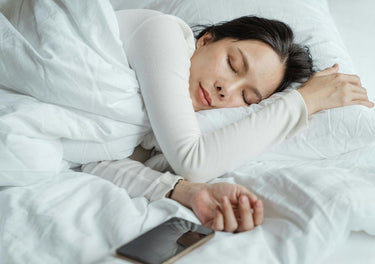A Student's Guide To Skincare Survival During Freshers Week

With Freshers Week and the new academic year just around the corner, it is time to begin thinking about the transition into student life. From moving cities to making new friends, starting University is full of exciting new changes. But, one thing that is often overlooked is how much the University lifestyle can change your skin.
From changes in your diet to lots of late nights, those first few weeks can wreak havoc on your complexion. To help you avoid 'fresher's skin' we've enlisted the help of Kimberley, Head of Clinic at Face the Future, to talk us through her biggest pieces of skincare advice for anyone starting University for the first time this September...
1. Understand how a change in lifestyle can impact your skin
For a lot of students, University will be the first time that they're away from home for an extended period of time, and it can be very easy to underestimate the impact that this can have on your skin."
“In addition to high alcohol consumption, late nights and takeaways that many people indulge in when starting university, there are other lifestyle changes that can place pressure on your skin.
“Simple things like a change in washing powder and moving to a city with hard water from a more rural location, can result in changes to your complexion. While it can be really easy to blame the more obvious lifestyle changes for causing breakouts, the reality is that in some cases it can be these more basic things that have the biggest impact on your skin.”
2. Maintain hydration
Hydration is a huge priority when it comes to skincare, but it is even more important to help undo the effects of fresher's week.
“Late nights and alcohol will always leave your skin feeling more thirsty than normal. Upping your water intake should always be your first priority, but for anyone looking to give your skin a further boost, hyaluronic acid will quickly become your skin’s best friend."
“As a general rule, you should be looking to incorporate a thick moisturiser into your skincare routine in the morning and at night to help keep your skin hydrated and feeling plump. If you’re prone to dry skin, consider taking a hydrating facial mist out with you and give yourself a spritz every couple of hours to help keep up hydration.”
3. Keep it simple and stick to it
Help to curb the effects of tiredness and alcohol by ensuring that your skincare routine is both simple and consistent.
“Whilst your skin is already under additional pressure, the last thing it needs is a lack of routine. Of course, everyone’s skin is unique and has individual needs, but generally speaking, for someone aged between 18 and 25, I’d recommend keeping your routine minimal. Focus on finding a good cleanser that works for your skin type and a moisturiser with hyaluronic acid to help hydrate.”

4. Never sleep in your makeup
After a night out, it can be difficult to remember to carry out your normal skincare routine. But, removing your make-up is crucial when it comes to caring for your skin and keeping it healthy."
“First things first, double cleanse your skin. This should always be the starting point in an evening skincare routine, but after a night of drinking this becomes even more crucial in warding off any unwanted breakouts.
“Oil based cleansers do a great job at removing all traces of makeup - perfect for when you’ve got to wash away a full-face. For the second cleanse, opt for a gentle hydrating cleanser to give your skin a much-needed boost of hydration, without leaving the skin irritated.”
5. Understand which ingredients you need
A key element to maintaining healthy and happy skin is to understand which ingredients your skin will benefit from the most. For students, this is usually lighter ingredients that can help manage breakouts and keep your complexion looking fresh.
“As mentioned, hyaluronic acid is absolutely key for student skin. Niacinamide is also a really great ingredient for those looking to keep their complexion clear as it effectively prevents acne breakouts and works to unclog pores."
“Lactic acid is another good ingredient for young skin as it can help exfoliate the skin and maintain brightness, but is a weaker form. This makes it a particularly good ingredient for those whose skin experiences increased sensitivity when stress levels are higher.”
6. Start each day with a facial workout
Lack of sleep and alcohol consumption can lead to a puffy face. To tackle this, put your fingers or gua sha to good use.
“Introducing movement on the skin is a great way to reduce puffiness with immediate effect as it will encourage increased circulation and inject life back into your complexion. If you have a gua sha with you at university, use this with a light to moderate pressure after applying a light facial oil to avoid any friction on the skin.
“Alternatively, you can take some ice and gently rub over the face in a circular motion. Gel eye patches can also be used for a quick, temporary fix, minimising the appearance of dark circles whilst also working wonders for a hangover headache.”
Learn how to create the perfect self-tan routine with Rose & Caramel here.





















